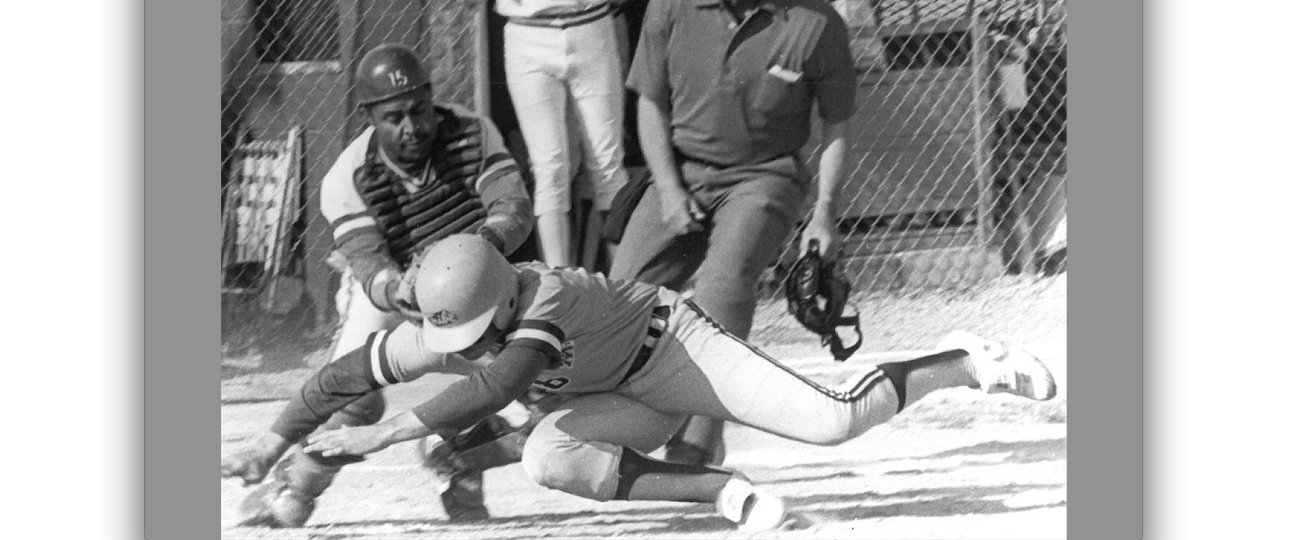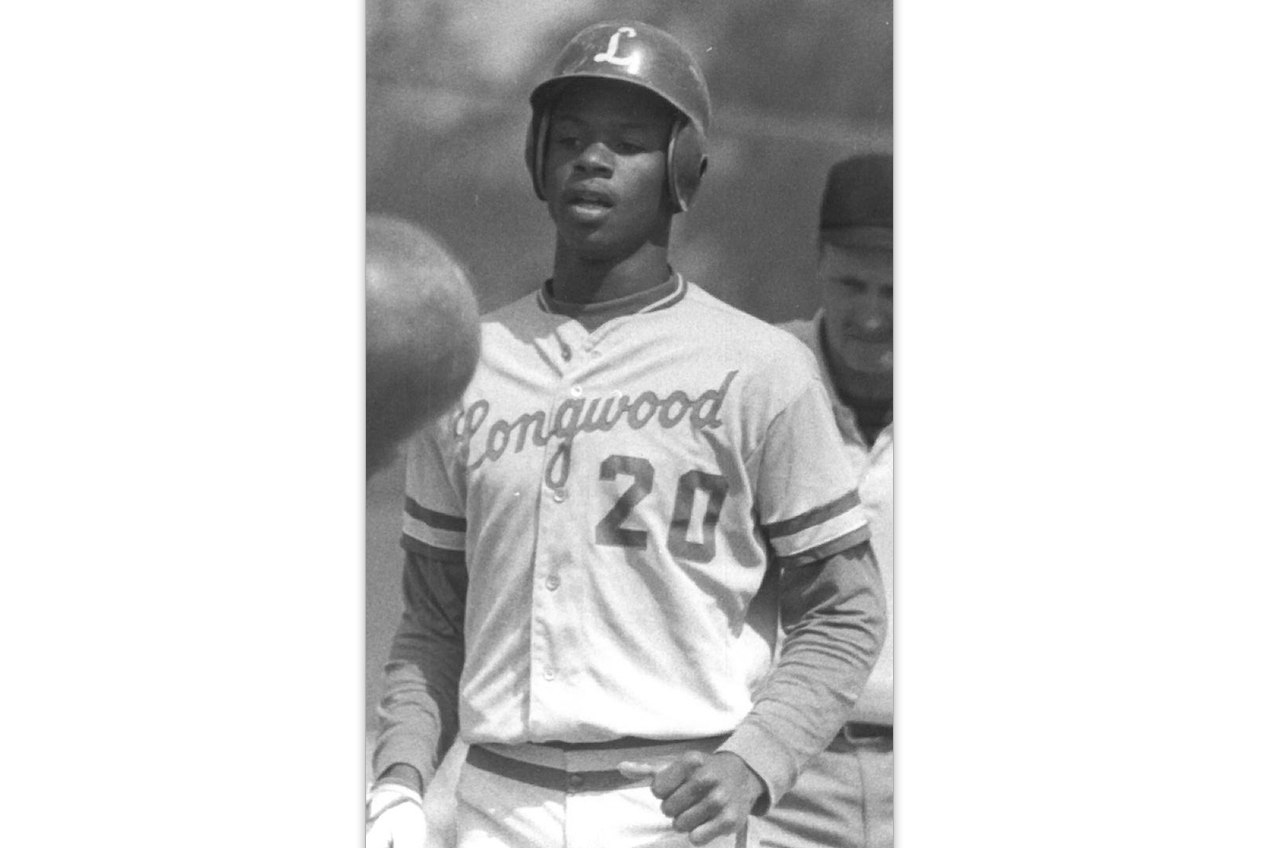Bluestone pipeline helped establish Longwood baseball
Published 10:02 am Saturday, June 6, 2020
For dyed-in-the-wool Longwood University baseball fans, Doug Toombs, Michael Tucker and Frankie Watson are legendary names. All three set records, milestones and indelible marks in Lancer baseball history.
Their names are peppered throughout the Longwood baseball record books and remain prominent figures in Longwood baseball lore. Toombs, a catcher, was named a Division III All-American as a freshman in 1980 after hitting a school-record .565. Watson, a centerfielder noted for his defense, hit .352 with 33 RBIs, eight doubles, six triples and four home runs, and was the first Longwood baseball player ever selected in the Major League Baseball (MLB) Draft. Tucker, a shortstop, was a two-time Division II All-American first-team selection and carried that success into the professional ranks where he played 12 years in the big leagues after being drafted 10th overall by Kansas City in 1992.
And just like Longwood basketball greats Jerome Kersey and Carmille Barnette, they all graduated from Bluestone High School in Skipwith — Toombs in 1979, Watson in 1985 and Tucker in 1989. The baseball trio also grew up in the same neighborhood in Chase City, a small town in Mecklenburg County.
When recruiting the three from Bluestone, former Longwood Baseball Coach Buddy Bolding did not need a scouting report or recommendation from their high school coach. He knew their baseball tools firsthand. The Longwood Hall of Fame coach played with or against them in the Southside League, then an adult circuit of current and former high school and college players.
Bolding, who was a pitcher and outfielder, joined the Keysville Braves shortly after taking the Longwood job in June 1978. At 31, he was an accomplished pitcher in high school and college and played a season of professional ball.
Managed by the late Chester Gregory, the Braves were a power in the Southside. While the ages ranged from 17 to 40-plus, this was no leisurely weekend “beer league.” According to Bolding, it was serious, “crisp” amateur baseball that in some years could compete with AA and AAA clubs.
“The young ballplayers, if they were good enough to play with the men, we gave them a chance to get better,” Bolding, who now lives in Roanoke with his wife Andrea, said.
“We let them play with us. They learned how to play baseball by playing with men, not playing with boys. Doug was a young catcher, and I observed him (in the Southside League) when I first got (to Longwood). Another year later, he would have gone to college somewhere else. It worked out well for him and for Longwood. He was a fine young catcher with a lot of talent. He was a great pressure ballplayer, and I give a lot of that to his experience playing with men — a 17-year-old kid playing with 35-year-old men.”
Toombs, who was part of Bolding’s second recruiting class, was the first in the Bluestone-to-Longwood baseball pipeline. He also tipped off the Longwood basketball coaches about his friend Jerome Kersey, a 1980 Bluestone graduate.
“Sports back then were different than they are today,” Toombs said, who lives in Chesterfield County and owns and operates Hit Doctor Baseball.
“We did not have the travel ball thing going on. When we finished high school ball, for that summer, the only thing for us to do was to play in this men’s league during the summer. We were just fortunate that a baseball coach at a college was a player in that same league.”
As a pitcher for the Keysville Braves, Bolding quickly came to know Albert Toombs and Calvin Tucker, Doug and Michael’s fathers, respectively. He also played with Charlie Watson, Frankie’s uncle.
All were regular-season opponents who would team up with Bolding for a special Fourth of July and Labor Day series against teams from New Jersey. Bolding fondly remembers the summer of 1979 when he threw a no-hitter against the Jersey Sharks. Calvin Tucker caught, and both hit home runs.
“He (Calvin Tucker) was a better baseball player than Michael, had much more power at the plate,” Bolding said. “He could hit every pitch well. Calvin Tucker had a major league arm as a catcher. He was a left-handed hitter and had immense power.”
As a firm believer in bloodlines, Bolding projected Michael’s potential early on.
When did he know Michael was special?
“The first moment I saw him get out of the truck with his daddy playing in a ballgame when he was 12 years old,” Bolding remembered. “He had that look. Plus, he was Calvin Tucker’s son, and there was no way that he wasn’t going to be anything but tremendous.
“There was no doubt in my mind that Michael had the potential to be in the big leagues. I never questioned it.”
Michael had other plans, at least initially.
“My whole thought process was, ‘Hey, I am going to be a basketball player,’” Tucker, a point guard at Bluestone who attended camps at Duke, the University of North Carolina and Prep Stars, said.
“I think a lot of that had to do with going to Longwood basketball games and watching Jerome,” he said. “I’m like, ‘I can do that.’”
In intramurals and pickup games at Longwood, Tucker was known for his vertical leap, taking off near the free throw line for spectacular dunks.
“I knew I was good at baseball, and I really wanted to play basketball, but I did not get any (basketball) offers.”
Bolding’s recruiting pitch to the Tucker family was based on a longtime friendship and trust.
“I remember Coach (Bolding) came to my dad, and he said, ‘Hey, I’ve seen him play, he’s a really good player. When he wants to go to school and wants to go play baseball, here you go. Come see me.’ So, my dad and Coach Bolding had a pretty good relationship. So, we talked, and he was like, ‘You could go play baseball at Longwood… That’s not far away. They’re pretty good.’ That is kinda how it worked. I said, ‘Okay, I’ll give it a shot.’”
Coming into Longwood as a freshman, Tucker found out quickly that he would not only start at shortstop but take on a leadership role.
“One day I was talking to Coach after practice, which was very rare. I wanted to get out of there and not do extra drills,” Tucker remembered.
“He told me, ‘The reason I got you here is because at some point, this is going to be your team. It’s going to be sooner than later. I need you to be able to carry this team when these guys are gone.’
“And it made sense to me when he put it that way. From that point on, that is how I looked at it through my whole college career. We had some great guys, but Coach said that this is your team. You have to lead your team. A lot of times, we might not want to be put in that position. Sometimes the position just kind of finds us.”
Through Bolding’s vision and Tucker’s execution, great accomplishments were in store for the shortstop from Chase City.
Perhaps one of his proudest moments was when he and Doug Toombs passed on their wisdom to his nephew, Antwaun Tucker, Bluestone Class of 2016 and a senior on this year’s Longwood baseball team.
Antwaun, who has been a four-year starter at Longwood, showed his appreciation. He wore No. 15 as a freshman, Toombs’ Longwood number.
“I talked to Antwaun per the request from his father (Kelvin),” Toombs said. “I told him I left my legacy, Michael left his legacy, now you leave your legacy. I had success, Jerome had success, Frankie had success.”
Michael Tucker, who lives in Fort Myers, Florida, and instructs aspiring baseball players through United States Specialty Sports Association, Perfect Game and MLB, reinforced Tombs’ message.
“I kind of left him (Antwaun) alone,” Michael said. “The one thing he was concerned with was whether he could go ahead and play. If you go there to play and you do play baseball, they are going to try and make comparisons. You are you. I’m me. I’ve already done stuff there. They retired my jersey. You go play your game.”
Antwaun, whose fourth year was cut short due to concerns surrounding the spread of the COVID-19 virus, never felt the pressure. He is grateful to his elders who paved the path to Farmville.
“They opened the door for Bluestone athletes, and I am just walking through it now,” he said. “We (Michael and Antwaun) were two different styles of players. He was a power guy, and I am a speed guy. I played the game my own way. It was big shoes to fill, but I mean that’s why I liked it. I wanted the challenge. Some people would have backed away from it, but I feel like I embraced it.”
The Bluestone-to-Longwood alumni embraced and delivered on their challenges. Steve Crute, a four-year Longwood golfer and Bluestone Class of 1988 member, may have described their characteristics best. He witnessed them firsthand as Michael Tucker’s baseball and basketball teammate and as Carmille Barnette and Jerome Kersey’s friend.
“They were all talented, but they all had such good personalities,” Crute, who lives in the Raleigh, North Carolina, area and is an adapted physical education specialist for Wake County Public Schools, said. “They enjoyed going to practice, they enjoyed playing the game. It was never like work to them. And I think that was part of it. They never took it as life and death.
“When it was time to go, they knew how to do it. They competed and got after it. They were all good teammates, and all got along with everybody and enjoyed the experience. But you also knew who the best player was on the court or on the baseball field, and they enjoyed being that as well.”






